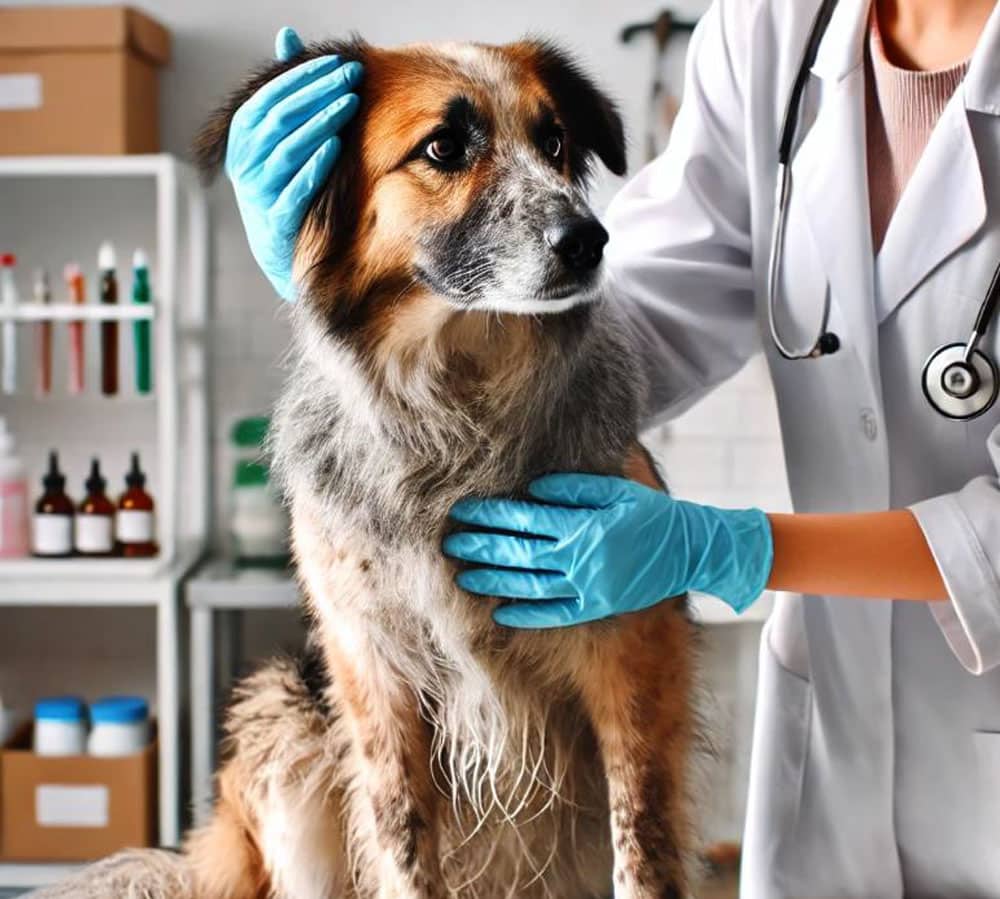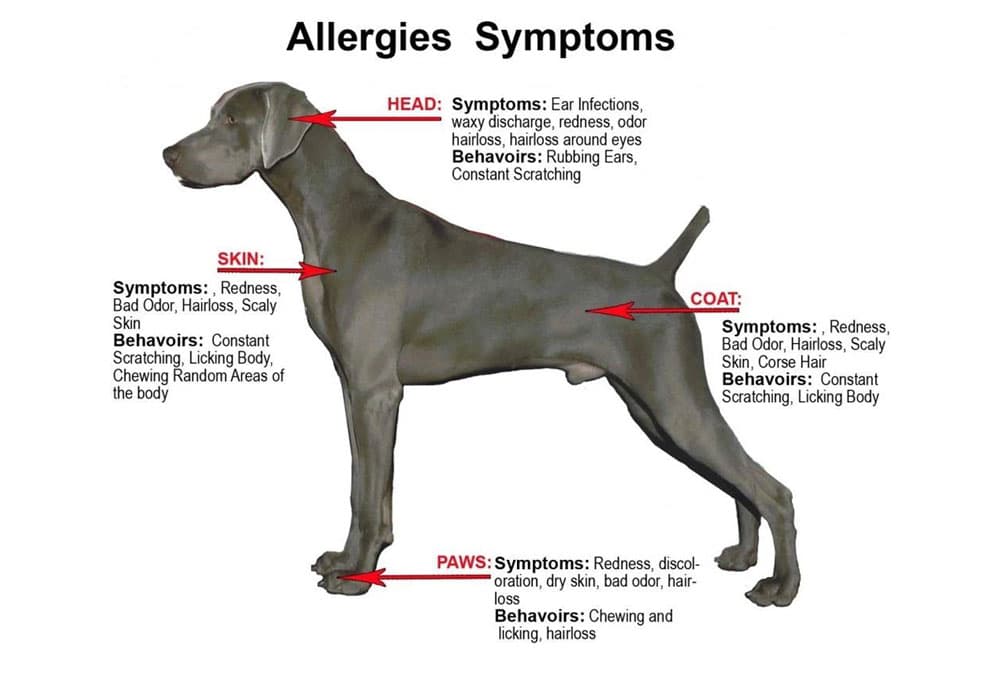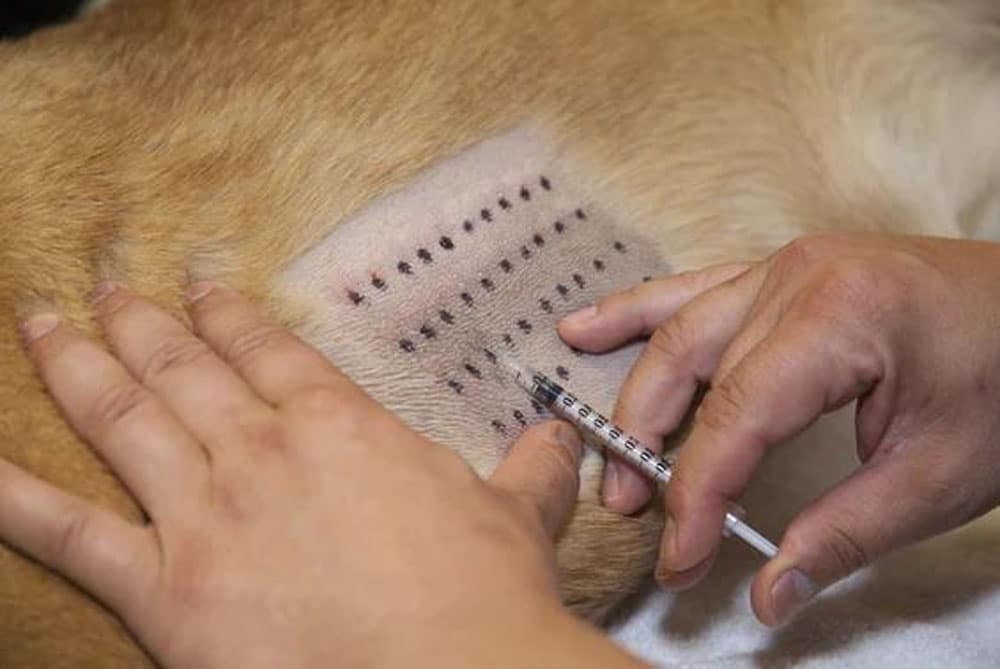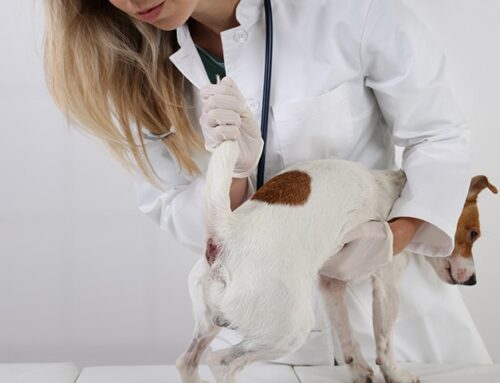Dog Allergies: Symptoms, Diagnosis, and Treatment for Pet Owners in South Orange County
Key Takeaways
What is an allergy?
Just like humans, dogs can suffer from allergies, which can range from mild discomfort to severe health issues. Allergies occur when a dog’s immune system overreacts to a substance that is otherwise harmless. These overreactions can cause inflammation, itching, and other symptoms that impact your dog’s quality of life. Understanding what an allergy is and how it affects dogs is the first step toward helping your furry companion live a healthier, happier life.
An allergy is an abnormal immune system response to a substance (allergen) that is typically harmless to most dogs. Common allergens include pollen, certain foods, mold spores, and dust mites. When a dog is allergic, their immune system mistakenly identifies these substances as harmful, triggering reactions such as itchy skin, ear infections, or gastrointestinal upset.
For dog owners in South Orange County, the warm climate and lush vegetation can increase exposure to environmental allergens, making it crucial to recognize the signs early. Allergies can significantly impact a dog’s quality of life, and prompt intervention is essential to prevent chronic discomfort or complications.

Picture 1: Dog with itchy skin receives attentive treatment at the veterinary clinic.
What are the types of allergies in dogs?
Not all dog allergies are the same, and understanding the types of allergies your pet may face is crucial for providing the right care. Allergies in dogs can be broadly categorized into three main types, each with its unique set of causes and symptoms. Identifying which type of allergy your dog has is key to developing an effective treatment plan.
Dog allergies are generally classified into three categories:
Each type of allergy requires a different approach to treatment, highlighting the importance of proper diagnosis.
What are the typical symptoms of dog allergies?
Recognizing the symptoms of allergies in your dog is crucial for ensuring their health and comfort. Allergies in dogs can present in various ways, often overlapping with other conditions, which can make diagnosis challenging. Common signs include skin irritations, respiratory issues, and even gastrointestinal upset. For pet owners in South Orange County, environmental factors such as pollen and mold can intensify these symptoms, especially during seasonal changes.
Dog allergy symptoms can vary significantly depending on the type of allergen and the severity of the reaction. Common symptoms include:
Living in South Orange County means that your dog may be exposed to a wide range of environmental allergens, particularly during spring and fall when pollen counts are highest. Seasonal grasses, mold spores, and even year-round flowering plants can trigger allergic reactions. The area’s warm, humid climate can also exacerbate symptoms by creating conditions conducive to flea infestations, a common cause of contact allergies in dogs.

Picture 2: Common dog allergy symptoms, including itchy skin, ear infections, hair loss on the coat, and irritated paws, and others.
How to diagnose allergies in dogs?
Determining the exact cause of your dog’s allergies is essential for effective treatment. Allergies can mimic other conditions, so a thorough diagnostic approach ensures accurate identification and management. From specialized skin tests to elimination diets, veterinarians have various tools to uncover the source of your dog’s discomfort.
Diagnosing dog allergies involves a combination of methods to pinpoint the underlying allergen:

Picture 3: A veterinarian performs intradermal skin allergy testing on a dog, injecting small amounts of allergens to observe for localized reactions like redness or swelling, a key diagnostic method for environmental allergies.
Can I avoid food or environmentally related allergies?
Preventing allergies entirely may not always be possible, but taking proactive steps can significantly reduce your dog’s exposure to common allergens. By making small changes in your dog’s environment and diet, you can minimize the chances of allergic reactions and improve their overall quality of life.
While it’s impossible to eliminate all allergens, you can minimize exposure by:
Living in South Orange County, where environmental allergens are prevalent, proactive measures can significantly reduce your dog’s discomfort.
How to treat dog allergies?
Treating dog allergies requires a personalized approach because each dog’s allergies are unique. The treatment plan depends on the type of allergy—whether it’s environmental, food-related, or caused by contact with irritants—and the severity of the symptoms. The goal of treatment is not only to manage the symptoms but also to address the root cause of the allergy, providing your dog with long-term relief. At Bliss Animal Hospital, we specialize in comprehensive and compassionate allergy treatments tailored to your pet’s specific needs.
Environmental Allergies:
Environmental allergies, also known as atopic dermatitis, are triggered by substances like pollen, mold, or dust mites. Managing these allergies typically involves:
Food Allergies
Food allergies can cause symptoms like chronic ear infections, gastrointestinal distress, or skin irritation. Effective treatment involves:
Contact Allergies:
Contact allergies occur when your dog’s skin reacts to irritants like certain shampoos, cleaning products, or plants. Treatment typically includes:
At Bliss Animal Hospital, we combine advanced diagnostic techniques with a compassionate, individualized approach to allergy treatment. Whether your dog’s allergies are mild or severe, our experienced veterinary team is dedicated to finding the best solutions to improve your pet’s quality of life.
Conclusion
Help Your Dog Live Comfortably
Dog allergies are a common but manageable condition. Whether it’s seasonal allergies, food-related issues, or contact irritants, understanding the types and symptoms of dog allergies empowers you to seek timely care. Bliss Animal Hospital is here to support South Orange County pet owners with advanced diagnostics, personalized treatments, and compassionate care.
If your dog is experiencing symptoms of allergies, schedule an appointment with Bliss Animal Hospital. Contact us at (949) 354-5201 to ensure your pet’s comfort and health today!
About Bliss Animal Hospital
Our team, led by Dr. Nayara Pataro and Dr. Sam Amirshahi, is dedicated to providing compassionate, top-rated care right here in South Orange County. With a strong emphasis on relationships and personalized veterinary care, we’re here to support you and your pet’s health and happiness. If you’re looking for convenient, high-quality care nearby, check out our veterinarian services in Lake Forest, CA and surrounding areas like Veterinarian near Mission Viejo, CA, Irvine, CA Veterinarian (Great Park and Portola Springs) and vet near Rancho Santa Margarita, CA.











Leave A Comment